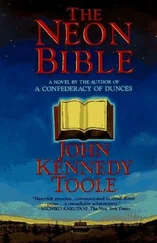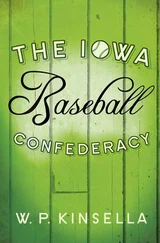John Toole - A Confederacy of Dunces
Здесь есть возможность читать онлайн «John Toole - A Confederacy of Dunces» весь текст электронной книги совершенно бесплатно (целиком полную версию без сокращений). В некоторых случаях можно слушать аудио, скачать через торрент в формате fb2 и присутствует краткое содержание. Год выпуска: 1980, Жанр: Современная проза, на английском языке. Описание произведения, (предисловие) а так же отзывы посетителей доступны на портале библиотеки ЛибКат.
- Название:A Confederacy of Dunces
- Автор:
- Жанр:
- Год:1980
- ISBN:нет данных
- Рейтинг книги:5 / 5. Голосов: 1
-
Избранное:Добавить в избранное
- Отзывы:
-
Ваша оценка:
- 100
- 1
- 2
- 3
- 4
- 5
A Confederacy of Dunces: краткое содержание, описание и аннотация
Предлагаем к чтению аннотацию, описание, краткое содержание или предисловие (зависит от того, что написал сам автор книги «A Confederacy of Dunces»). Если вы не нашли необходимую информацию о книге — напишите в комментариях, мы постараемся отыскать её.
A Confederacy of Dunces — читать онлайн бесплатно полную книгу (весь текст) целиком
Ниже представлен текст книги, разбитый по страницам. Система сохранения места последней прочитанной страницы, позволяет с удобством читать онлайн бесплатно книгу «A Confederacy of Dunces», без необходимости каждый раз заново искать на чём Вы остановились. Поставьте закладку, и сможете в любой момент перейти на страницу, на которой закончили чтение.
Интервал:
Закладка:
The address that Patrolman Mancuso was looking for was the tiniest structure on the block, aside from the carports, a Lilliput of the eighties. A frozen banana tree, brown and stricken, languished against the front of the porch, the tree preparing to collapse as the iron fence had done long ago. Near the dead tree there was a slight mound of earth and a leaning Celtic cross cut from plywood. The 1946 Plymouth was parked in the front yard, its bumper pressed against the porch, its taillights blocking the brick sidewalk. But, except for the Plymouth and the weathered cross and the mummified banana tree, the tiny yard was completely bare. There were no shrubs. There was no grass. And no birds sang.
Patrolman Mancuso looked at the Plymouth and saw the deep crease in its roof and the fender, filled with concave circles, that was separated from the body by three or four inches of space. VAN CAMP’S PORK AND BEANS was printed on the piece of cardboard taped across the hole that had been the rear window. Stopping by the grave, he read REX in faded letters on the cross. Then he climbed the worn brick steps and heard through the closed shutters a booming chant.
Big girls don’t cry.
Big girls don’t cry.
Big girls, they don’t cry-yi-yi.
They don’t cry.
Big girls, they don’t cry…yi.
While he was waiting for someone to answer the bell, he read the faded sticker on the crystal of the door, “A slip of the lip can sink a ship.” Below a WAVE held her finger to lips that had turned tan.
Along the block some people were out on their porches looking at him and the motorcycle. The shutters across the street that slowly flipped up and down to get the proper focus indicated that he also had a considerable unseen audience, for a police motorcycle in the block was an event, especially if its driver wore shorts and a red beard. The block was poor, certainly, but honest. Suddenly self-conscious, Patrolman Mancuso rang the bell again and assumed what he considered his erect, official posture. He gave his audience his Mediterranean profile, but the audience saw only a small and sallow figure whose shorts hung clumsily in the crotch, whose spindly legs looked too naked in comparison to the formal garters and nylon socks that hung near the ankles. The audience remained curious, but unimpressed; a few were not even especially curious, the few who had expected some such vision to visit that miniature house eventually.
Big girls don’t cry
Big girls don’t cry.
Patrolman Mancuso knocked savagely at the shutters.
Big girls don’t cry.
Big girls don’t cry.
“They home,” a woman screamed through the shutters of the house next door, an architect’s vision of Jay Gould domestic. “Miss Reilly’s prolly in the kitchen. Go around the back. What are you, mister? A cop?”
“Patrolman Mancuso. Undercover,” he answered sternly.
“Yeah?” There was a moment of silence. “Which one you want, the boy or the mother?”
“The mother.”
“Well, that’s good. You’d never get a hold of him. He’s watching the TV. You hear that? It’s driving me nuts. My nerves is shot.”
Patrolman Mancuso thanked the woman’s voice and walked into the dank alley. In the back yard he found Mrs. Reilly hanging a spotted and yellowed sheet on a line that ran through the bare fig trees.
“Oh, it’s you,” Mrs. Reilly said after a moment. She had almost started to scream when she saw the man with the red beard appear in her yard. “How you doing, Mr. Mancuso? What them people said?” She stepped cautiously over the broken brick paving in her brown felt moccasins. “Come on in the house and we’ll have us a nice cup of coffee.”
The kitchen was a large, high-ceilinged room, the largest in the house, and it smelled of coffee and old newspapers. Like every room in the house, it was dark; the greasy wallpaper and brown wooden moldings would have transformed any light into gloom, and from the alley very little light filtered in anyway. Although the interiors of homes did not interest Patrolman Mancuso, still he did notice, as anyone would have, the antique stove with the high oven and the refrigerator with the cylindrical motor on top. Thinking of the electric fryers, gas driers, mechanical mixers and beaters, waffle plates, and motorized rotisseries that seemed to be always whirring, grinding, beating, cooling, hissing, and broiling in the lunar kitchen of his wife, Rita, he wondered what Mrs. Reilly did in this sparse room. Whenever a new appliance was advertised on television, Mrs. Mancuso bought it no matter how obscure its uses were.
“Now tell me what the man said.” Mrs. Reilly began boiling a pot of milk on her Edwardian gas stove. “How much I gotta pay? You told him I was a poor widow with a child to support, huh?”
“Yeah, I told him that,” Patrolman Mancuso said, sitting erectly in his chair and looking hopefully at the kitchen table covered with oilcloth. “Do you mind if I put my beard on the table? It’s kinda hot in here and it’s sticking my face.”
“Sure, go ahead, babe. Here. Have a nice jelly doughnut. I just bought them fresh this morning over by Magazine Street. Ignatius says to me this morning, ‘Momma, I sure feel like a jelly doughnut.’ You know? So I went over by the German and bought him two dozen. Look, they got a few left.”
She offered Patrolman Mancuso a torn and oily cake box that looked as if it had been subjected to unusual abuse during someone’s attempt to take all of the doughnuts at once. At the bottom of the box Patrolman Mancuso found two withered pieces of doughnut out of which, judging by their moist edges, the jelly had been sucked.
“Thank you anyway, Miss Reilly. I had me a big lunch.”
“Aw, ain’t that a shame.” She filled two cups half full with thick cold coffee and poured the boiling milk in up to the rim. “Ignatius loves his doughnuts. He says to me, ‘Momma, I love my doughnuts.’” Mrs. Reilly slurped a bit at the rim of her cup. “He’s out in the parlor right now looking at TV. Every afternoon, as right as rain, he looks at that show where them kids dance.” In the kitchen the music was somewhat fainter than it had been on the porch. Patrolman Mancuso pictured the green hunting cap bathed in the blue-white glow of the television screen. “He don’t like the show at all, but he won’t miss it. You oughta hear what he says about them poor kids.”
“I spoke with the man this morning,” Patrolman Mancuso said, hoping that Mrs. Reilly had exhausted the subject of her son.
“Yeah?” She put three spoons of sugar in her coffee and, holding the spoon in the cup with her thumb so that the handle threatened to puncture her eyeball, she slurped a bit more. “What he said, honey?”
“I told him I investigated the accident and that you just skidded on a wet street.”
“That sounds good. So what he said then, babe?”
“He said he don’t want to go to court. He wants a settlement now.”
“Oh, my God!” Ignatius bellowed from the front of the house. “What an egregious insult to good taste.”
“Don’t pay him no mind,” Mrs. Reilly advised the startled policeman. “He does that all the time he looks at the TV. A ‘settlement.’ That means he wants some money, huh?”
“He even got a contractor to appraise the damage. Here, this is the estimate.”
Mrs. Reilly took the sheet of paper and read the typed column of itemized figures beneath the contractor’s letterhead.
“Lord! A thousand and twenty dollars. This is terrible. How I’m gonna pay that?” She dropped the estimate on the oilcloth. “You sure that is right?”
“Yes, ma’m. He’s got a lawyer working on it, too. It’s all on the up and up.”
“Where I’m gonna get a thousand dollars, though? All me and Ignatius got is my poor husband’s Social Security and a little two-bit pension, and that don’t come to much.”
Читать дальшеИнтервал:
Закладка:
Похожие книги на «A Confederacy of Dunces»
Представляем Вашему вниманию похожие книги на «A Confederacy of Dunces» списком для выбора. Мы отобрали схожую по названию и смыслу литературу в надежде предоставить читателям больше вариантов отыскать новые, интересные, ещё непрочитанные произведения.
Обсуждение, отзывы о книге «A Confederacy of Dunces» и просто собственные мнения читателей. Оставьте ваши комментарии, напишите, что Вы думаете о произведении, его смысле или главных героях. Укажите что конкретно понравилось, а что нет, и почему Вы так считаете.











